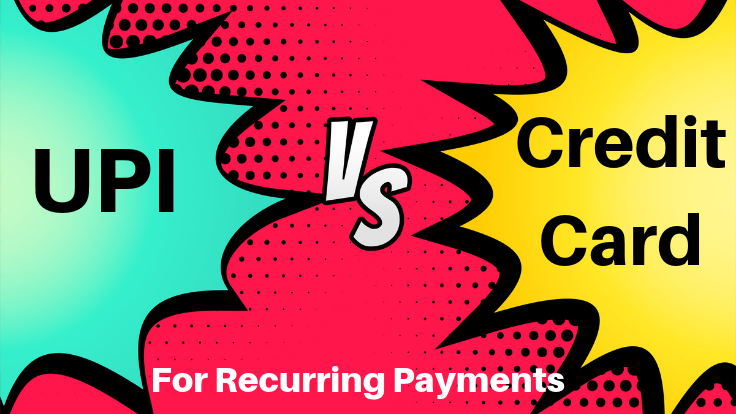Does your business require a collection of online payments for products and services at regular intervals?
Payment gateway providers make it easier for customers with Credit card options. With UPI coming into a lead, it would be a great contender. Which one should you go for recurring payments? Let us find out.
What are Recurring Payments?
In a recurring payment model, the service providers deduct the purchase amount from the buyer’s account at regular intervals which are set up automatically.
There are multiple recurring payment businesses, some use an invoice method wherein a payment is automatically deducted against an invoice and others use a Subscription Model business wherein you only pay as you use the services or product.
How does Recurring Payment Work?
To enable recurring payment, a customer must save the card and grant permission for the recurring charge. Stored payment data can then be used used to automatically process payments for repeat services or subscription model business. Payment gateway service providers can automate all types of business billing needs. Some have payments based on invoice cycle others initiate and manage recurring payments. Solutions are different for both types and thus it is necessary to identify your billing needs before getting a recurring service.
What is UPI?
Unified Payment Interface (UPI) is a single platform that provides different banking services and features. If your bank is UPI enabled, you can create a UPI ID that can be used for making transactions. A transaction can be made using an Aadhaar number, Mobile Number, and Virtual Payment Address (UPI ID). UPI allows the user to transfer and receive money from one bank account to another by using a smartphone. It enables the transfer directly from a bank account to the merchant and also handles basic banking activities. UPI is a revolution that can be an alternative to e-wallets, in other words, UPI is the best thing in the online money market.
According to NPCI, in March Rs.1.33 Lakh Crore of transactions is made via UPI which is a 24% increase from February 2019.
In 2018, UPI launched its second advanced version UPI 2.0 with more features but NPCI did not add recurring payments to support in it. This feature could be coming in UPI 3.0.
The feature can enable customers to issue a one-time mandate for recurring payments for services from the merchants. The best example can be automatic payments of monthly bills and subscription-based services. RBI refuses to release these features for UPI for fear of its misuse.
UPI vs Credit Card for recurring payments?
Business prefers to set up recurring payments against Credit/debit cards. Some global businesses like iTunes set it up on debit cards with One-factor-Authorization.
Unified Payment Interface:
- Recurring payment support for UPI is coming soon.
- A customer has full control over authorization for the requested payment.
- In the case of refunds, the merchant and buyer communicate directly.
- UPI is will be available with the banks that do not provide recurring payments.
- A recurring payment can be availed by anyone that has UPI.
Credit Card:
- Recurring payments are available on credit cards.
- Money is debited Automatically without the customer’s involvement.
- In the case of refunds merchant also has to deal with the customer’s bank.
- Recurring payments can be availed by those having a Credit card.
- A recurring payment cannot be availed with banks that do not allow it on a card.


